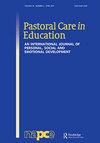Supporting young children’s friendships: the facilitating role of the lunchtime welfare supervisor
IF 0.9
Q3 EDUCATION & EDUCATIONAL RESEARCH
引用次数: 1
Abstract
ABSTRACT Friendship is of paramount importance to children’s holistic well-being and development. Friendship often runs smoothly, but when it runs into difficulties this can be unsettling and time consuming, particularly after the lunchtime break. This article makes an original contribution by placing the lunchtime period under scrutiny and specifically the role of lunchtime welfare supervisors in supporting children’s friendships. I adopt a case study approach, of year two provision (six- and seven-year-olds), involving five lunch time welfare supervisors and a Headteacher. Data were collected through semi-structured interviews, field notes and visual images. Findings provide new insights into specific strategies in the ‘Friendship Toolkit’ employed by Lunchtime Welfare Supervisors [LWS] to support children’s friendships, including calming down techniques, the use of a ‘put it right area’, playground leaders and post lunchtime briefing meetings. By way of conclusion, I argue that while lunchtime welfare supervisors have been somewhat overlooked in the literature, their role is significant for promoting and developing opportunities for ‘children’s friendship agency’ and, when required, bespoke friendship support. LWS are therefore pivotal to children’s holistic well-being, learning and development and how children experience school life. Consequently, the role of the LWS in supporting children’s friendships has implications for practice through the application of the ‘friendship toolkit’ of strategies and providing opportunities for ‘children’s friendship agency’.支持幼儿的友谊:午餐福利监督员的促进作用
友谊对儿童的整体健康和发展至关重要。友谊通常是一帆风顺的,但当它遇到困难时,就会令人不安,也会耗费时间,尤其是在午餐休息之后。这篇文章的原创性在于将午餐时间置于审视之下,特别是午餐福利监督员在支持儿童友谊方面的作用。我采用了案例研究的方法,研究二年级(六岁和七岁的孩子),涉及五名午餐时间福利监督员和一名校长。通过半结构化访谈、实地记录和视觉图像收集数据。研究结果为午餐福利监督员(LWS)为支持儿童友谊而采用的“友谊工具包”中的具体策略提供了新的见解,包括冷静技巧、“正确区域”的使用、操场领导和午餐后简报会议。最后,我认为虽然午餐福利监督员在文献中有些被忽视了,但他们的作用对于促进和发展“儿童友谊机构”的机会以及在需要时定制的友谊支持是重要的。因此,LWS对儿童的整体健康、学习和发展以及儿童如何体验学校生活至关重要。因此,LWS在支持儿童友谊方面的作用通过“友谊工具包”策略的应用和为“儿童友谊机构”提供机会,对实践具有启示意义。
本文章由计算机程序翻译,如有差异,请以英文原文为准。
求助全文
约1分钟内获得全文
求助全文

 求助内容:
求助内容: 应助结果提醒方式:
应助结果提醒方式:


